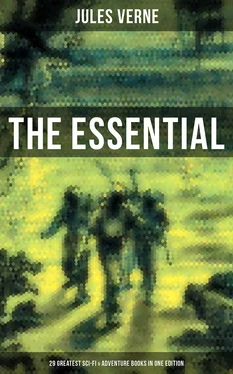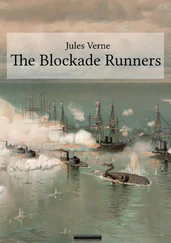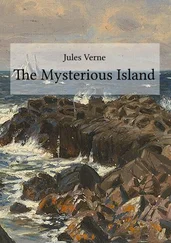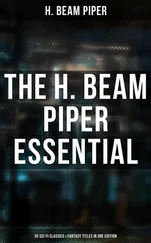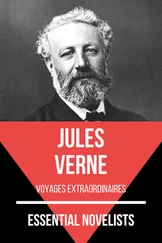The doctor could not restrain a tear, and extending his hands his two friends wrung them silently with that deep emotion which requires no spoken words.
Table of Contents
Conclusion.—The Certificate.—The French Settlements.—The Post of Medina.—The Basilic.—Saint Louis.—The English Frigate.—The Return to London.
The expedition upon the bank of the river had been sent by the governor of Senegal. It consisted of two officers, Messrs. Dufraisse, lieutenant of marines, and Rodamel, naval ensign, and with these were a sergeant and seven soldiers. For two days they had been engaged in reconnoitring the most favorable situation for a post at Gouina, when they became witnesses of Dr. Ferguson’s arrival.
The warm greetings and felicitations of which our travellers were the recipients may be imagined. The Frenchmen, and they alone, having had ocular proof of the accomplishment of the daring project, naturally became Dr. Ferguson’s witnesses. Hence the doctor at once asked them to give their official testimony of his arrival at the cataracts of Gouina.
“You would have no objection to signing a certificate of the fact, would you?” he inquired of Lieutenant Dufraisse.
“At your orders!” the latter instantly replied.
The Englishmen were escorted to a provisional post established on the bank of the river, where they found the most assiduous attention, and every thing to supply their wants. And there the following certificate was drawn up in the terms in which it appears to-day, in the archives of the Royal Geographical Society of London:
“We, the undersigned, do hereby declare that, on the day herein mentioned, we witnessed the arrival of Dr. Ferguson and his two companions, Richard Kennedy and Joseph Wilson, clinging to the cordage and network of a balloon, and that the said balloon fell at a distance of a few paces from us into the river, and being swept away by the current was lost in the cataracts of Gouina. In testimony whereof, we have hereunto set our hands and seals beside those of the persons hereinabove named, for the information of all whom it may concern.
“Done at the Cataracts of Gouina, on the 24th of May, 1862. “(Signed), “SAMUEL FERGUSON “RICHARD KENNEDY, “JOSEPH WILSON, “DUFRAISSE, Lieutenant of Marines, “RODAMEL, Naval Ensign, “DUFAYS, Sergeant, “FLIPPEAU, MAYOR, } “PELISSIER, LOROIS, } Privates.” RASCAGNET, GUIL- } LON, LEBEL, }
Here ended the astonishing journey of Dr. Ferguson and his brave companions, as vouched for by undeniable testimony; and they found themselves among friends in the midst of most hospitable tribes, whose relations with the French settlements are frequent and amicable.
They had arrived at Senegal on Saturday, the 24th of May, and on the 27th of the same month they reached the post of Medina, situated a little farther to the north, but on the river.
There the French officers received them with open arms, and lavished upon them all the resources of their hospitality. Thus aided, the doctor and his friends were enabled to embark almost immediately on the small steamer called the Basilic, which ran down to the mouth of the river.
Two weeks later, on the 10th of June, they arrived at Saint Louis, where the governor gave them a magnificent reception, and they recovered completely from their excitement and fatigue.
Besides, Joe said to every one who chose to listen:
That was a stupid trip of ours, after all, and I wouldn’t advise any body who is greedy for excitement to undertake it. It gets very tiresome at the last, and if it hadn’t been for the adventures on Lake Tchad and at the Senegal River, I do believe that we’d have died of yawning.”
An English frigate was just about to sail, and the three travellers procured passage on board of her. On the 25th of June they arrived at Portsmouth, and on the next day at London.
We will not describe the reception they got from the Royal Geographical Society, nor the intense curiosity and consideration of which they became the objects. Kennedy set off, at once, for Edinburgh, with his famous rifle, for he was in haste to relieve the anxiety of his faithful old housekeeper.
The doctor and his devoted Joe remained the same men that we have known them, excepting that one change took place at their own suggestion.
They ceased to be master and servant, in order to become bosom friends.
The journals of all Europe were untiring in their praises of the bold explorers, and the Daily Telegraph struck off an edition of three hundred and seventy-seven thousand copies on the day when it published a sketch of the trip.
Doctor Ferguson, at a public meeting of the Royal Geographical Society, gave a recital of his journey through the air, and obtained for himself and his companions the golden medal set apart to reward the most remarkable exploring expedition of the year 1862.
–––-
The first result of Dr. Ferguson’s expedition was to establish, in the most precise manner, the facts and geographical surveys reported by Messrs. Barth, Burton, Speke, and others. Thanks to the still more recent expeditions of Messrs. Speke and Grant, De Heuglin and Muntzinger, who have been ascending to the sources of the Nile, and penetrating to the centre of Africa, we shall be enabled ere long to verify, in turn, the discoveries of Dr. Ferguson in that vast region comprised between the fourteenth and thirty-third degrees of east longitude.
A Journey To The Center Of The Earth - 1864
Main TOC
Contents
PREFACE
CHAPTER I.
CHAPTER II.
CHAPTER III.
CHAPTER IV.
CHAPTER V.
CHAPTER VI.
CHAPTER VII.
CHAPTER VIII.
CHAPTER IX.
CHAPTER X.
CHAPTER XI.
CHAPTER XII.
CHAPTER XIII.
CHAPTER XIV.
CHAPTER XV.
CHAPTER XVI.
CHAPTER XVII.
CHAPTER XVIII.
CHAPTER XIX.
CHAPTER XX.
CHAPTER XXI.
CHAPTER XXII.
CHAPTER XXIII.
CHAPTER XXIV.
CHAPTER XXV.
CHAPTER XXVI.
CHAPTER XXVII.
CHAPTER XXVIII.
CHAPTER XXIX.
CHAPTER XXX.
CHAPTER XXXI.
CHAPTER XXXII.
CHAPTER XXXIII.
CHAPTER XXXIV.
CHAPTER XXXV.
CHAPTER XXXVI.
CHAPTER XXXVII.
CHAPTER XXXVIII.
CHAPTER XXXIX.
CHAPTER XL.
CHAPTER XLI.
CHAPTER XLII.
CHAPTER XLIII.
CHAPTER XLIV.
CHAPTER XLV.
Table of Contents
THE “Voyages Extraordinaires” of M. Jules Verne deserve to be made widely known in English-speaking countries by means of carefully prepared translations. Witty and ingenious adaptations of the researches and discoveries of modern science to the popular taste, which demands that these should be presented to ordinary readers in the lighter form of cleverly mingled truth and fiction, these books will assuredly be read with profit and delight, especially by English youth. Certainly no writer before M. Jules Verne has been so happy in weaving together in judicious combination severe scientific truth with a charming exercise of playful imagination.
Iceland, the starting point of the marvellous underground journey imagined in this volume, is invested at the present time with. a painful interest in consequence of the disastrous eruptions last Easter Day, which covered with lava and ashes the poor and scanty vegetation upon which four thousand persons were partly dependent for the means of subsistence. For a long time to come the natives of that interesting island, who cleave to their desert home with all that amor patriae which is so much more easily understood than explained, will look, and look not in vain, for the help of those on whom fall the smiles of a kindlier sun in regions not torn by earthquakes nor blasted and ravaged by volcanic fires. Will the readers of this little book, who, are gifted with the means of indulging in the luxury of extended beneficence, remember the distress of their brethren in the far north, whom distance has not barred from the claim of being counted our “neighbours”? And whatever their humane feelings may prompt them to bestow will be gladly added to the Mansion-House Iceland Relief Fund.
Читать дальше
